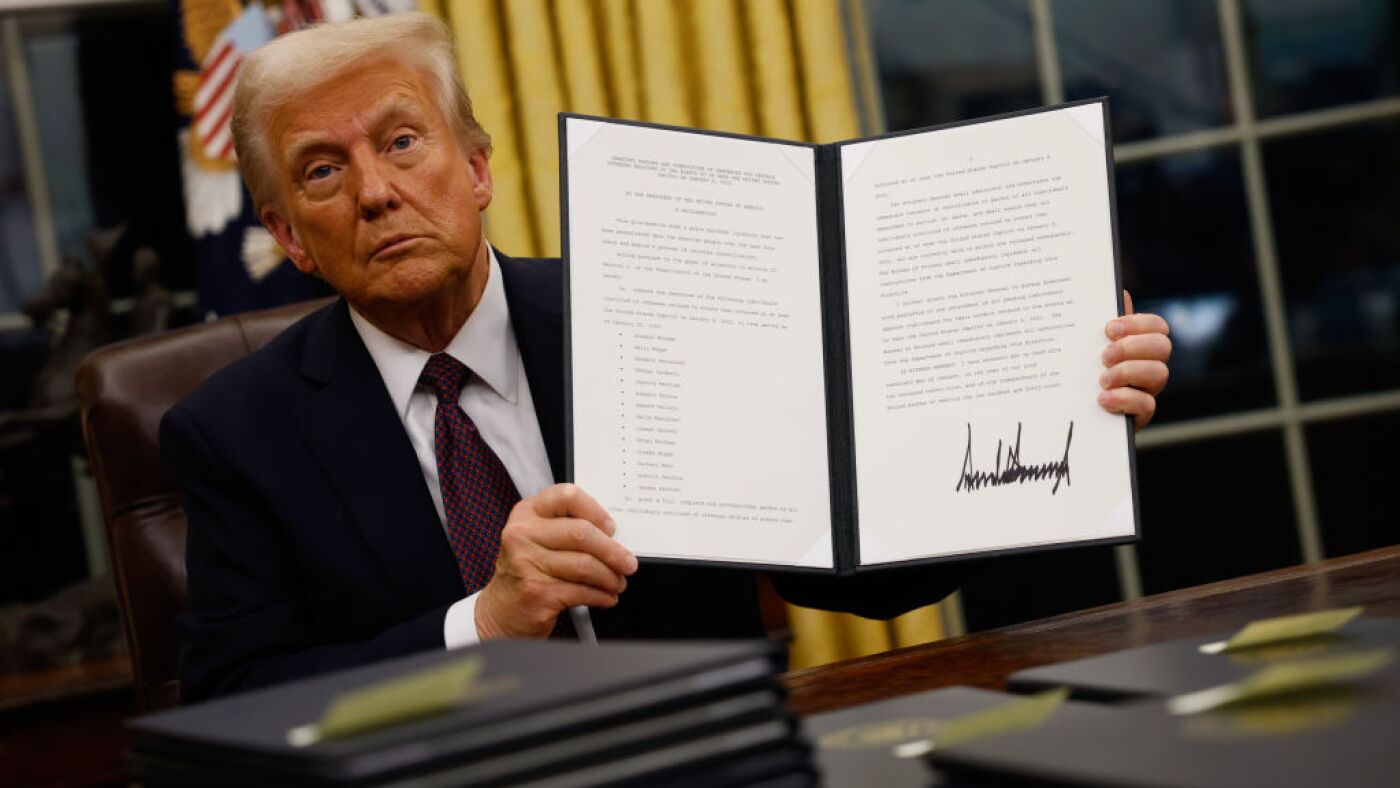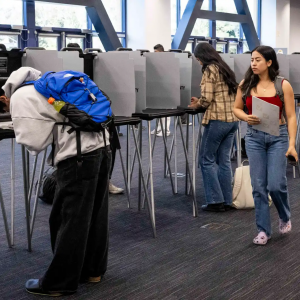A mid-air collision over the Potomac. Raging wildfires in Los Angeles. The catastrophic collapse of the Francis Scott Key Bridge. At first glance, these events seem completely disconnected from each other. However, they do share one underlying theme: they were all swiftly blamed on DEI. In a world where accountability often takes a back seat to political narratives, DEI has become the go-to scapegoat for utterly unrelated national crises. But why, and what does this say about the broader attacks on diversity and equal opportunity?
Programs centering DEI—diversity, equity, and inclusion—were originally created to address disparities within employment opportunities, but they have also played an important role in the realm of higher education. Historically, marginalized communities have not had access to the same resources as their white counterparts, nor have they been entitled to the same sense of belonging. Creating workplaces and educational spaces that accommodate and respect the differing backgrounds of everyone has been a priority of DEI programs, moving us closer to equal opportunity.
The creation of programs we now label as “DEI” can be traced back to the passage of the Civil Rights Act of 1964, which barred employment discrimination on the basis of race, color, national origin, religion, or gender. This piece of legislation opened the door for proactive initiatives to include voices that had been largely ignored for centuries, like the establishment of the Equal Employment Opportunity Commission and the incorporation of mandatory diversity training programs within the workplace.
While the push for DEI lost traction during the Reagan Administration, it was recently renewed by the Black Lives Matter Movement in 2020, which once again illuminated the nation’s deeply rooted issue of systemic racism. Throughout its entire history, DEI programs were rooted in the idea that many deserving candidates were being overlooked due to inequitable social structures.
An increased support of DEI initiatives was inevitably met with backlash from those who frame diversity efforts as a threat to “merit-based” systems, namely the Trump Administration and other members of the Republican Party. In 2023 alone, Republicans introduced at least 65 bills to constrain DEI within higher education and parts of the U.S. government, eight of which became law. Other efforts of censorship, frequently in the form of book bans or restrictions on curriculum, have also targeted conversations surrounding racism, sexism, and homophobia in recent years. But this opposition to DEI related policies is nothing new, especially for the Trump administration.
Since his presidency in 2016, Trump has not only abandoned efforts to combat unlawful discrimination, but actively escalated attacks on equal opportunity initiatives. One of these many attacks included the publication of the 1776 Report. It accurately encapsulates the previous Trump Administration’s attempt to demonize advancements in racial equality. The report was issued as a direct response to the 1619 Project, which was an initiative to reframe the story of our nation’s founding in order to properly bring attention to the consequences of slavery. The 1776 Report outright refuted the broadening of this narrative, downplayed the legacy of slavery within the country, and was part of a larger political agenda to remove diversity education from all aspects of American life. In this first term, he was also successful in eradicating diversity training programs from the federal government, which included education surrounding race and gender discrimination.
As he continues his second presidency, Trump has gutted the federal government of all DEI programs in a recent executive order. This is a severe escalation from his initial attack on just diversity training, while simultaneously championing his decision as an effort to increase equality within a “merit-based society.”
His resounding message is clear; diversity is weakness, and a society that is inclusive cannot possibly be a meritocracy. This relies on the assumption that Black and brown individuals, women, and other minorities cannot possibly be as capable as their white counterparts. Therefore, they could not have possibly risen to levels of such authority or achievement without having the standards lowered for them. This line of reasoning is particularly dangerous, because it discredits marginalized communities on the sole basis that they are marginalized.
This tactic has repeatedly been used to discredit the efforts of qualified people in the workplace but especially extends to those in political office.
During the 2024 presidential campaign, Kamala Harris, a woman with years of experience as a prosecutor, Attorney General of California, a U.S. senator, and then Vice President, was called a “DEI hire” by Republicans. Of course, this explicitly implies that she was not suitable to hold office because she could not have earned any of these positions as a woman of color, since her identity contradicted the idea that she ever could have been qualified in the first place.
An increasingly alarming aspect of these attacks is how the usage of the word “DEI” has transformed into a sanitized way of being openly racist, sexist, and ableist in the name of meritocracy. Labeling all efforts to progress racial equality as harmful DEI propaganda weaponizes these programs against marginalized communities. As a result, these communities have been made a malleable target for anything and everything the administration wishes to pin on them. Not only will this continue to alienate American minorities, but it is sure to worsen racial tensions within the nation.
Subsequently, the targeting of DEI has been a method for the Trump Administration to completely subvert accountability. In the case of the deadly mid-air plane collision over the Potomac River, Trump was more than ready to blame DEI, falsely claiming that the Federal Aviation Administration was hiring incompetent air traffic controllers as a result of such programs. In this case, Trump’s objection to diversity efforts targeted disabled individuals, who he maintained were incapable of performing their jobs. What he failed to mention however, was that one of his first acts as president was to fire and suspend employees from the FAA, which had already been struggling with a shortage of air traffic controllers for years.
During the devastating Los Angeles wildfires, which reduced entire neighborhoods in places like Altadena and the Pacific Palisades to ashes, this troubling shift in accountability also emerged. Rather than addressing the real issues of climate change, infrastructure deficiencies, and staffing shortages within the fire department, critics like Elon Musk and Megyn Kelly pointed to DEI efforts as the root cause of the crisis. They blamed L.A. Fire Chief Kristin Crowley for prioritizing diversity efforts and criticized Mayor Karen Bass (the city’s first woman mayor), calling her a “DEI hire,” with Musk even commenting “DEI means people DIE.” By once again deflecting attention onto diversity initiatives, they effectively ignored the city’s dire logistical challenges and the urgent need for increased funding to address the fire department’s lack of resources.
This manufactured outrage over DEI is not about preserving meritocracy or ensuring competency. It is a calculated attack on progress, designed to roll back decades of work toward equity and inclusion. If left unchecked, it will continue to erode opportunities for historically excluded groups, further exacerbating racial tensions and disparities. Rather than consuming narratives about DEI that distract us from real systemic failures, we must refocus our attention on holding our leaders accountable for the policies that genuinely impact our safety, economy, and democracy.
Featured Image Source: National Public Radio (NPR)






Comments are closed.